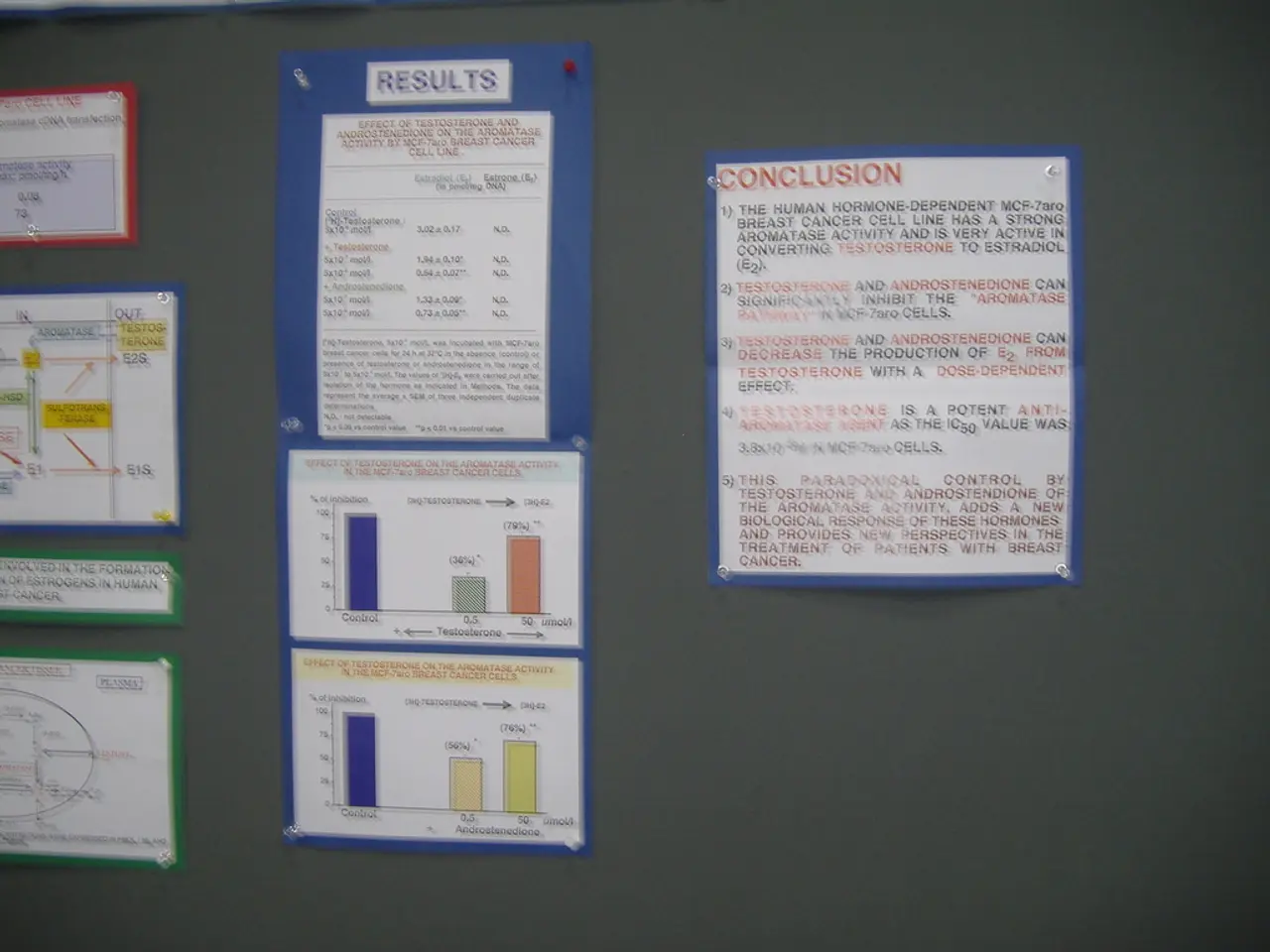UPS Faces Setbacks - DHL Nears the Top of the German Stock Index (DAX)
In the recently concluded Q2 of 2025, DHL Group has emerged as a stronger investment option compared to UPS, according to recent performance analysis. This advantage is primarily due to DHL's global exposure, diversified logistics services, and resilience in complex trade environments.
One of the key factors contributing to DHL's attractiveness is its broader global reach and diversification. Unlike UPS, which generates 67% of its revenue domestically, DHL focuses more on international express shipments and freight forwarding. This geographic and service diversification offers better resilience and growth potential in the face of global trade tensions.
DHL's portfolio includes integrated logistics and supply chain services, which are seeing increased demand due to the expansion of e-commerce and healthcare logistics globally. UPS also invests in these segments but faces headwinds from parcel volume declines in the U.S. market.
While UPS reported strong Q2 revenue of $21.2 billion and operating profit around $1.8-$1.9 billion with EPS near $1.51-$1.55, its results were impacted by a 9% decline in U.S. parcel volumes and operational restructuring costs. In contrast, DHL has displayed an ability to adapt quickly to trade volatility and complexity with customs brokerage and foreign trade zone strategies, which might give it longer-term competitive advantages.
DHL's global strategy for e-commerce logistics and its ability to capture international freight movements align well with current trends of cross-border trade growth. UPS, on the other hand, is mitigating risks of tariffs and volume declines with automation and cost discipline but still faces challenges related to domestic parcel volume declines and last-mile delivery cost pressures.
In summary, while UPS delivered solid financial results for Q2 2025, DHL Group's broader international footprint, diversified logistics services, and stronger positioning in higher-growth markets give it an edge as a better investment option considering recent operational and market context. UPS's performance remains resilient but somewhat constrained by domestic volume declines and transformation costs, suggesting DHL may offer more growth potential and stability in the evolving logistics landscape.
Notably, UPS's international business saw a slight increase, but its U.S. home market declined in the second quarter. UPS has again refrained from providing guidance for the current year due to "persistent macroeconomic uncertainties." UPS's net income dropped from $1.4 billion to $1.3 billion in the second quarter.
JPMorgan, a major U.S. bank, expressed disappointment with UPS and maintained a "Neutral" rating with a price target of $107. In contrast, JPMorgan's analyst, Alexia Dogani, maintains an "Overweight" rating with a price target of €49 for DHL Group.
Investors are advised to keep an eye on the stop-loss at €30.50 for DHL Group. Those with a long-term view can use price dips to accumulate DHL Group stocks. However, it's important to note that DHL Group also experienced negative impacts, but specific details were not provided in the article.
Alexia Dogani draws cautious conclusions about DHL Group's future due to the slowdown in international volume growth at UPS. Analyst Brian Ossenbeck expects below-average stock performance for UPS due to the ongoing lack of guidance.
It's worth mentioning that Bernd Förtsch, the management and majority shareholder of the publisher Börsenmedien AG, has entered into direct and indirect positions in the financial instruments mentioned in the publication or related derivatives, which could benefit from the potential price development resulting from the publication. (Conflict of Interest Disclosure)
In the stock market, the UPS stock lost 10% in New York on Tuesday, while DHL Group's stock lost 3% and became the clear laggard in the DAX. No new estimate for UPS's current year guidance was provided in this article. Adjusted earnings per share for UPS in the second quarter were $1.55. UPS reported a revenue decline in the second quarter, from $21.8 billion to $21.2 billion.
- DHL's global strategy and its focus on international express shipments and freight forwarding, as opposed to UPS's domestic revenue generation, provide better resilience and growth potential, especially in the face of global trade tensions.
- JPMorgan's analyst, Alexia Dogani, holds an "Overweight" rating for DHL Group, suggesting that long-term investors might find benefits in purchasing DHL stocks during price dips. However, it's essential to be cautious about DHL's future due to the slowdown in international volume growth at UPS.




